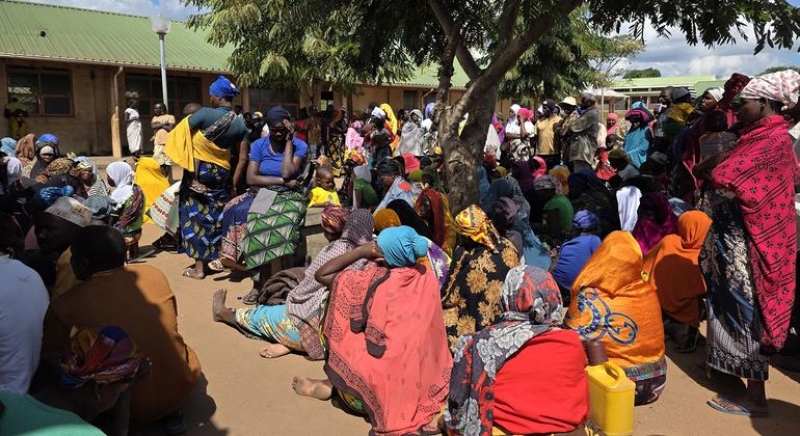- Bhutan’s Tala Dam Overtopped after unprecedented rainfall |
- Bangladesh’s Coastal Fishers Trapped by Debt, Climate Change |
- 3 US physicists win Nobel for quantum tunneling research |
- Bangladesh economy rebounds strongly in latter half of FY25: WB |
- Tarique urges teachers to back BNP for reform-focused govt |
22,000 Flee as Conflict Intensifies in Northern Mozambique

In just one week, around 22,000 people have been forced to flee their homes due to a new escalation of violence in Mozambique.
Nearly 22,000 people fled their homes in northern Mozambique in a single week last month due to renewed fighting across Cabo Delgado, the UN refugee agency (UNHCR) warned on Tuesday.
The surge in displacement in late September marks a turning point in the conflict — now entering its eighth year — with more than 100,000 people already uprooted in 2025.
The violence in Cabo Delgado began in 2017, led by armed groups locally known as al-Shabaab — unrelated to the Somali Islamist militia of the same name. The conflict has evolved into a complex crisis compounded by repeated cyclones, floods, and droughts that have devastated livelihoods.
For the first time since hostilities began, all 17 districts of Cabo Delgado have been directly affected, with more than 1.3 million people displaced — many of them multiple times.
“Families are reaching their limit,” said Xavier Créach, head of UNHCR in Mozambique, noting that some who once hosted displaced people are now fleeing themselves.
Civilians continue to be targeted amid reports of killings, abductions, and sexual violence, while children face the risk of forced recruitment.
Women and girls are especially vulnerable when collecting water or firewood, and those with disabilities or older persons often cannot flee the violence. Many are traumatised and urgently need psychosocial support, Mr. Créach added.
The violence has sharply intensified this year, with more than 500 incidents recorded through August — surpassing even the peaks of 2022 — including raids, abductions, and the destruction of homes and infrastructure.
The humanitarian crisis has deepened amid the collapse of health services across the north.
According to the World Health Organization-led response, about 60 per cent of facilities in the worst-affected districts are non-functional due to insecurity, looting, and staff displacement.
Essential services such as maternity care, HIV treatment, and emergency response have been severely disrupted.
In Mocímboa da Praia, the only hospital is operating with less than 10 per cent of its staff — mostly volunteers struggling to keep the emergency room and maternity ward open.
Aid groups warn that disease risks are mounting, with malaria and cholera cases expected to rise as the rainy season begins.
The health sector’s annual response plan is only 11 per cent funded this year, leaving stocks of essential medicines critically low.
UNHCR also faces severe funding shortfalls. It has received only $66 million of the $352 million required for its Mozambique operations this year, leaving response capacity “stretched just as needs rise.”

